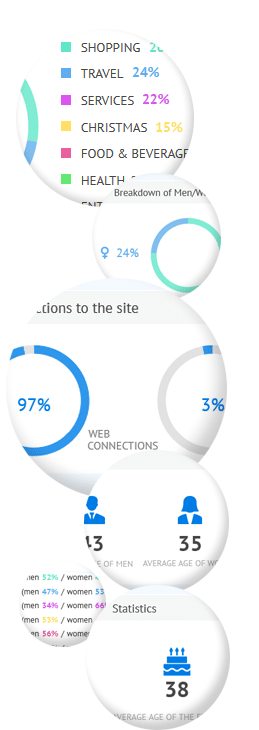The digitalization of human resources is an inevitable process. In 2017, more than ever, it will offer a way for any company to boost growth. And also, a way for HR departments to have greater impact by reinforcing their strategic role within the company.

In 2017, HR will be able to shift their digitalization process into higher gear
It is a trend that extends well beyond the domain of human resources. Society as a whole is continuing to make the digital transition. Employees have fully integrated smartphones, tablets and other connected devices into their daily lives. Their habits and ways of using them are changing with every new technological development. It’s time for HR professionals to move with the times and transform their profession.

Disruption, automation and productivity
Social media, big data, semantic analysis, business intelligence and the collaborative cloud have completely revolutionized the way we live, both socially and professionally. Properly applied, this technological boom can be of particular benefit in the area of HR. It can:
- lower costs;
- automate many management processes;
- streamline decision-making;
- increase productivity;
- improve assessment metrics.
The last traces of cultural resistance to digital solutions are being broken down. HR professionals recognize that they can work more efficiently thanks to the new tools that are now available.
What they above all gain is more energy for high added value tasks.
Reinventing the function of HR within the company
With digitalization, HR will inevitably move closer to the communication, IT and marketing departments. To attract new employees or keep them motivated, nowadays they need to work together to develop a coherent brand strategy and corporate culture.
Long relegated to time-consuming administrative tasks, HR staff are finding new recognition and visibility within the company organization. The senior human resources staff are gaining a greater voice in the company’s strategic decision-making.
 More tools mean more options
More tools mean more options
Concretely, the digital HR revolution will take the form of an ever-wider array of new tools that can be adapted to the needs and culture of any company.
.
Increasingly efficient dashboards
Digitalization heralds the age of customization. From now on, every HR department will be able to select the software and platforms that allow it to best manage its resources. Big data provides more information on the needs and activities of employees, on-the-job as well as in terms of their professional ambitions.
.
When they can follow the habits of employees more closely, HR services will become more efficient and better able to adapt to the rapidly changing society:
.
- new ways of working (telework, flexible schedules, nomadic working, …);
- the emergence of Generations Y & Z on the job market;
- more employee-centric business strategies, …
.
A more relevant Benefits policy
The digitalization of talent management will align with societal trends. While traditional systems of compensation are demonstrating their limitations, dematerialized benefits offer increasing advantages for HR management:
- better understanding of employees;
- offers that can be adapted to the needs of each employee;
- scalable services, …